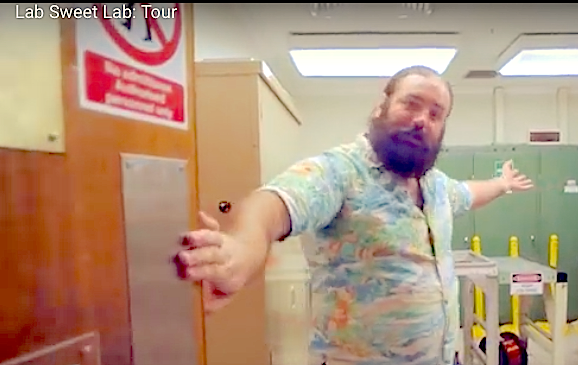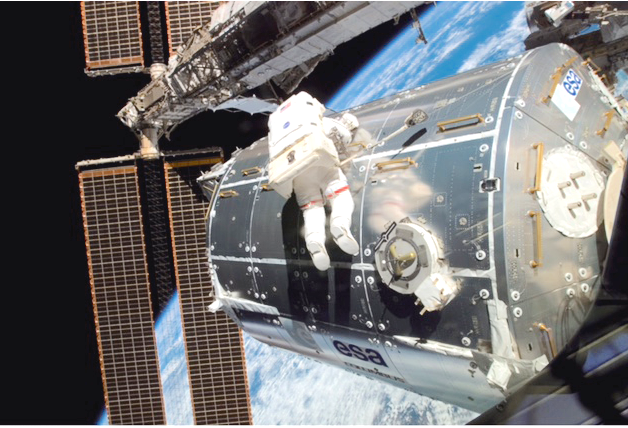
"G'day, g'day and welcome to Lab Sweet Lab," says Dr. Paddy Neumann Chief Scientist and Founder of Neumann Space.

It seems most appropriate that at a renowned conference such as this week’s IAC Conference in Guadalajara, Mexico, that 'firsts' might be announced. And so it happened that Airbus Defence and Space and Neumann Space, an Australian Space technology company, have signed the very first agreement for a hosted payload aboard the new Bartolomeo platform of the International Space Station (ISS).

Named after the younger brother of Christopher Columbus, the Bartolomeo platform will be attached to the European Columbus Module and operated by Airbus Defence and Space starting in 2018. With its All-in-One Mission Service, Airbus Defence and Space provides all mission-related elements and can even assist when it comes to building the actual payload.
The Bartolomeo platform will provide an end-to-end service that offers fast, cost-efficient and reliable access to the ISS for private and institutional users on commercial terms. Its all-in-one payload mission service will attract customers from areas including Earth observation, technology demonstrators, astro- and heliophysics, material science and new space flight applications.

Bartolomeo platform courtesy of Airbus Defense and Space.
Bart Reijnen, Head of On-Orbit Services and Exploration at Airbus Defence and Space stated, “Our 'ISS balcony' provides a highly cost- and time-efficient means to perform a space mission in LEO or to test and validate new technology in orbit. Customers can benefit from our extensive experience in integrating and operating payloads on the ISS and are hence free to fully concentrate on their individual space mission, without needing to develop a complex space system or a deep understanding of the ISS.”
Neumann Space will use their 50+ liters of payload space on Bartolomeo for their FAST —Facility for Australian Space Testing program. Patrick Neumann, Chief Scientist and co-founder of Neumann Space stated, “The FAST program provides a unique opportunity for the in-orbit demonstration of technology for small and medium enterprises, schools and universities filling a gap in the current market. With FAST, a collection of payloads starting at just 1 kg mass will be sent together with our Neumann Drive to be operated in space for up to 12 months. We are glad to rely on Airbus Defence and Space to handle launch, power, in-orbit installation, communications down from the ISS and all the other bits and pieces needed to make this program a success.”
The payload launch is envisioned for late 2018, and Neumann Space is already working on following up the first payload with others, including the possibility of returning payload elements back to Earth at the end of the mission.
https://airbusdefenceandspace.com/

